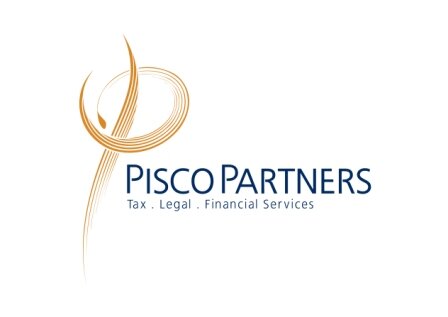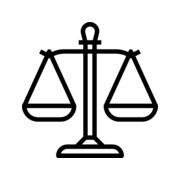Best Water Law Lawyers in Malta
Share your needs with us, get contacted by law firms.
Free. Takes 2 min.
Or refine your search by selecting a city:
List of the best lawyers in Malta
About Water Law in Malta
Water Law in Malta covers a broad set of legal principles, regulations, and policies governing the management, use, and protection of water resources within the country. As an island nation in the Mediterranean, Malta faces distinct water supply challenges due to its limited freshwater resources and growing demand. Water Law in Malta addresses issues such as the allocation of water rights, regulation of groundwater extraction, protection against pollution, management of public water supplies, and compliance with both national and European Union standards. These laws aim to ensure fair and sustainable use of water while safeguarding the needs of present and future generations.
Why You May Need a Lawyer
Individuals and businesses may require legal advice on Water Law in Malta for a variety of reasons. Some common situations include disputes over water rights between neighbors, challenges related to the drilling of wells or boreholes, permits for water extraction or usage, issues arising from the contamination or pollution of water sources, and compliance matters associated with local or EU water regulations. Landowners often seek legal guidance when planning developments that may affect water flow or access, while businesses involved in agriculture, tourism, or industry need to navigate licensing and regulatory frameworks. Legal assistance is also crucial if you are facing enforcement or penalties due to alleged breaches of water-related laws.
Local Laws Overview
Several key legal instruments shape Water Law in Malta. The country adheres to the Water Services Corporation Act, which establishes the public entity responsible for water provision and sewerage. The Groundwater Regulation Regime governs private abstraction and ensures the sustainable use of underground water bodies. Malta also implements the Water Policy Framework Regulations, reflecting its obligations under the European Union Water Framework Directive. These laws regulate water quality, allocation, supply, and conservation. Additional legislation addresses issues of water pollution, rainwater harvesting, and the reuse of treated wastewater. Permits and licenses are often required for drilling, extraction, and water-related developments, with regulatory oversight provided by various governmental agencies.
Frequently Asked Questions
What legal rights do individuals have to water access in Malta?
Water is considered a public good in Malta, and individuals have the right to access potable water. The supply and regulation of water resources are managed by public authorities, while private landowners’ rights are subject to legal restrictions to ensure fair allocation and sustainability.
Can I drill a well or borehole on my property?
Drilling a well or borehole in Malta typically requires a permit from the relevant authority. There are strict rules to prevent over-extraction and to protect groundwater resources, so applications are assessed individually.
Is it legal to use rainwater for household purposes?
Yes, collecting and using rainwater is legal in Malta and is encouraged to supplement water supply. However, any system for rainwater harvesting must comply with building codes and public health standards.
How are water disputes between private parties resolved?
Conflicts over water rights or access are generally resolved through negotiation or, if necessary, legal proceedings. Mediation is sometimes encouraged before resorting to court action.
Who regulates water quality and supply in Malta?
The Water Services Corporation is the primary public entity responsible for water supply and quality. Regulatory oversight may also involve the Environment and Resources Authority, especially regarding environmental impact.
Are there penalties for illegal water extraction or usage?
Yes, unauthorized water extraction or non-compliance with permit conditions can result in fines, sanctions, or criminal charges. The authorities actively monitor and enforce these regulations.
What environmental laws affect water usage?
Environmental laws regulate pollution, protect sensitive ecosystems, and set standards for wastewater discharge. Water users must adhere to these laws to avoid liability.
Can businesses receive financial support for water-saving initiatives?
Depending on the specific program, businesses can sometimes access grants, incentives, or subsidies for water conservation, infrastructure upgrades, or sustainable water management practices.
How do European Union laws impact Water Law in Malta?
Malta is bound by EU directives, such as the Water Framework Directive, which sets requirements on water quality, monitoring, and integrated management. National law is harmonized with these standards.
What should I do if my water source is polluted?
If you suspect water contamination, report it immediately to the relevant authority, such as the Water Services Corporation or the Environment and Resources Authority. Legal remedies and remediation measures may be available, depending on the source and severity of contamination.
Additional Resources
For more information on Water Law and related matters in Malta, the following resources may be helpful:
- Water Services Corporation - the main agency for water provision and quality assurance
- Environment and Resources Authority - regulates environmental protection and oversees water pollution issues
- Planning Authority - for advice on water-related development and building permits
- Malta Chamber of Commerce, Enterprise and Industry - provides guidance for businesses on water management compliance
- Local councils and community organizations - can assist with localized water access or dispute issues
Next Steps
If you believe you need legal assistance regarding Water Law in Malta, it is recommended to gather all relevant documentation, such as property titles, permits, correspondence with authorities, and any expert reports. Clearly define your concerns or objectives before consulting a qualified lawyer or legal advisor experienced in Water Law. An initial consultation can help you understand your rights, responsibilities, and possible courses of action. Be prepared to discuss your case in detail and provide all necessary information to facilitate accurate legal advice. If the matter involves urgent environmental or public health risks, contact the relevant authority as soon as possible. Taking proactive steps early can help protect your interests and ensure proper resolution under Maltese law.
Lawzana helps you find the best lawyers and law firms in Malta through a curated and pre-screened list of qualified legal professionals. Our platform offers rankings and detailed profiles of attorneys and law firms, allowing you to compare based on practice areas, including Water Law, experience, and client feedback.
Each profile includes a description of the firm's areas of practice, client reviews, team members and partners, year of establishment, spoken languages, office locations, contact information, social media presence, and any published articles or resources. Most firms on our platform speak English and are experienced in both local and international legal matters.
Get a quote from top-rated law firms in Malta — quickly, securely, and without unnecessary hassle.
Disclaimer:
The information provided on this page is for general informational purposes only and does not constitute legal advice. While we strive to ensure the accuracy and relevance of the content, legal information may change over time, and interpretations of the law can vary. You should always consult with a qualified legal professional for advice specific to your situation.
We disclaim all liability for actions taken or not taken based on the content of this page. If you believe any information is incorrect or outdated, please contact us, and we will review and update it where appropriate.
Browse water law law firms by city in Malta
Refine your search by selecting a city.














